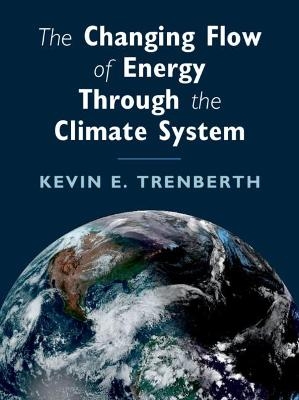
The Changing Flow of Energy Through the Climate System
Cambridge University Press (Verlag)
978-1-108-97246-8 (ISBN)
Kevin E. Trenberth emphasizes the fundamental role of energy flows in the climate system and anthropogenic climate change. The distribution of heat, or more generally, energy, is the main determinant of weather patterns in the atmosphere and their impacts. The topics addressed cover many facets of climate and the climate crisis. These include the diurnal cycle; the seasons; energy differences between the continents and the oceans, the poles and the tropics; interannual variability such as Niño; natural decadal variability; and ice ages. Human-induced climate change rides on and interacts with all of these natural phenomena, and the result is an unevenly warming planet and changing weather extremes. The book emphasizes the need to not only slow or stop climate change, but also to better prepare for it and build resilience. Students, researchers, and professionals from a wide range of backgrounds will benefit from this deeper understanding of climate change.
Dr. Kevin E. Trenberth is a Distinguished Scholar at the National Center for Atmospheric Research (NCAR). He was a Lead Author of the 1995, 2001, and 2007 Scientific Assessment Reports of the Intergovernmental Panel on Climate Change (IPCC), and shared the 2007 Nobel Peace Prize which went to the IPCC and Al Gore. He served from 1999 to 2006 on the Joint Scientific Committee of the World Climate Research Programme (WCRP). He chaired the WCRP Observation and Assimilation Panel from 2004 to 2010 and the Global Energy and Water Exchanges (GEWEX) Scientific Steering Group from 2010-2013 (member 2007-14). He has also served on many US national committees. He is a Fellow of the American Meteorological Society (AMS), the American Association for Advancement of Science (AAAS), the American Geophysical Union (AGU), and an honorary fellow of the Royal Society of New Zealand Te Apārangi. In 2000 he received the Jule G. Charney award from the AMS; in 2003 he was given the NCAR Distinguished Achievement Award; in 2013 he was awarded the Prince Sultan Bin Abdulaziz International Prize for Water, and he received the Climate Communication Prize from AGU. In 2017 he was honored with the Roger Revelle medal by the AGU.
1. Earth and Climate System; 2. Earth's Energy Imbalance and Climate Change; 3. Earth's Energy Balance; 4. The Sun-Earth System; 5. Observations of Temperature, Moisture, Precipitation and Radiation; 6. The Climate System; 7. The Weather Machine; 8. The Dynamic Ocean; 9. Poleward Heat Transports by the Atmosphere and Ocean; 10. The Changing Hydrological Cycle; 11. Teleconnections and Patterns of Variability; 12. El Niño; 13. Feedbacks and Climate Sensitivity; 14. Earth's Energy Imbalance Estimates; 15. Attribution and the Hiatus; 16. Prediction and Projection; 17. Emissions and Information; 18. Climate Change and Environmental Issues; References and further reading; Bibliography; Glossary; Acronyms; Index.
| Erscheinungsdatum | 13.01.2022 |
|---|---|
| Zusatzinfo | Worked examples or Exercises |
| Verlagsort | Cambridge |
| Sprache | englisch |
| Maße | 190 x 245 mm |
| Gewicht | 740 g |
| Themenwelt | Naturwissenschaften ► Biologie ► Ökologie / Naturschutz |
| Naturwissenschaften ► Geowissenschaften ► Geologie | |
| Naturwissenschaften ► Geowissenschaften ► Meteorologie / Klimatologie | |
| Naturwissenschaften ► Physik / Astronomie | |
| ISBN-10 | 1-108-97246-2 / 1108972462 |
| ISBN-13 | 978-1-108-97246-8 / 9781108972468 |
| Zustand | Neuware |
| Informationen gemäß Produktsicherheitsverordnung (GPSR) | |
| Haben Sie eine Frage zum Produkt? |
aus dem Bereich


